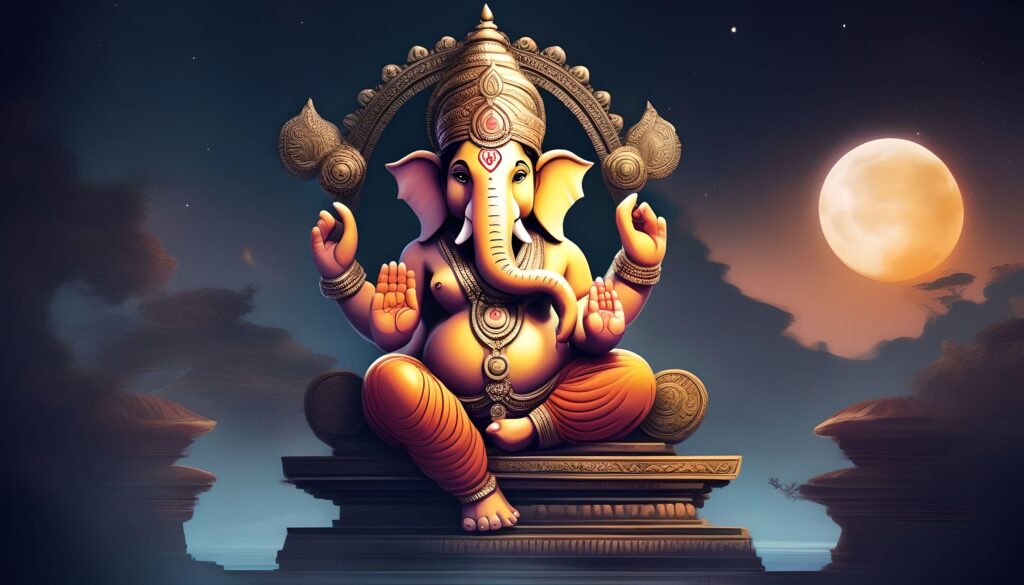Mauni Amavasya: The Sacred Day of Silence and self-realization
Mauni Amavasya, alternatively referred to as the Day of Silence, is a highly significant annual event in the Hindu calendar. It occurs on the Amavasya Tithi, which is the New Moon day, during the Magha month. Diverse rituals and practices commemorate this auspicious day, including fasting, bathing in sacred rivers, and observing silence. This article aims to delve into the profound spiritual significance and enduring traditions associated with Mauni Amavasya.
The Significance of Mauni Amavasya
Mauni Amavasya is revered in Hinduism due to its symbolic significance as a day associated with spiritual enlightenment and purification. As “Mauni” translates to “silence,” devotees observe silence on this day to strengthen their spiritual practice and establish a connection with their inner selves. Mauni Amavasya provides devotees with an ideal occasion to engage in introspection and pursue interior peace, as the month of Magha is regarded as an optimal time to engage in self-reflection and perform austerities.
The Rituals of Mauni Amavasya
1. Bathing in Sacred Rivers
Among the most important observances of Mauni Amavasya is bathing in sacred rivers. Numerous devotees congregate along the margins of rivers such as the Ganga, Yamuna, and Saraswati in an effort to attain spiritual purification and absolution from sin. Bathing in the sacred waters is a ceremonial practice referred to as Ganga Snan or Shahi Snan. On this auspicious day, it is believed that the Ganga water transforms into divine nectar (Amrit), bestowing tremendous spiritual advantages upon those who partake in its waters.
2. Fasting and Charity
On the day of Mauni Amavasya, devotees fast as a means of self-purification and penance. A fast may entail a complete abstinence from food and drink throughout the day, or adherence to particular dietary restrictions. Devotees perform charitable deeds by donating food, clothing, and other necessities to the impoverished and needy in addition to fasting. This act of benevolence is regarded as exceedingly meritorious and aids in the rectification of karmic debts.
3. Silence as a Spiritual Practice
Mauni Amavasya is distinguished above all else by its observance of silence. Adherents engage in the practice of silence with the intention of tranquilizing their thoughts, regulating their speech, and directing their vitality towards introspection and self-realization. Engaging in a state of silence for the duration of the day enables people to concentrate on their innermost thoughts, emotions, and spiritual ambitions. It is believed that one can achieve a more profound interior transformation and establish a more profound connection with the divine through the practice of silence.
The Legends and Stories of Mauni Amavasya
1. The Legend of Devaswami
During ancient times, the metropolis of Kanchipuram was inhabited by a Brahmin named Devaswami. His wife was virtuous, and he was the father of seven sons and one daughter. Astrological prophecies indicated that Devaswami’s daughter would experience widowhood subsequent to her matrimonial union. In order to resolve this dilemma, Devaswami sought the counsel of an astrologer, who recommended that he pay homage to Soma, the laundrette of Sinhaldweep. By adhering to the astrologer’s instructions, Devaswami conducted the worship, which resulted in the averting of an untimely demise for the spouse of his daughter. The occurrence of this extraordinary event on Mauni Amavasya solidified the day’s importance in their lives.
2. The Spiritual Significance
Mauni Amavasya is a day of seclusion and fasting observed in Hinduism, and it also carries spiritual significance in numerous cultures and traditions. The observance of silence extends beyond the confines of Indian spiritual traditions. Sacred days devoted to silence are mentioned in the Western tradition, including references to the Christian saints and the Greek deity Harpokrates, who both emphasized the significance of maintaining silence. Silence, as a spiritual practice, possesses a universal appeal that surpasses cultural boundaries and underscores its profound potential to influence an individual’s spiritual trajectory.
How to Observe Mauni Amavasya
1. Preparing for Mauni Amavasya
It is crucial to prepare oneself for this sacred day of solitude and spiritual observance in order to fully appreciate Mauni Amavasya. It is recommended to proactively strategize and organise essential preparations in order to reduce extraneous demands and distractions. This consists of abstaining from conversations, transportation, and television viewing, among other activities.
2. Practicing Silence
During the day of Mauni Amavasya, it is highly recommended that devotees maintain an absolute state of silence. This requires abstaining from all forms of communication, including verbal and written discourse. Practicing self-observation, introspection, and internalizing one’s thoughts and emotions ought to be the primary emphasis. By embracing solitude, people are able to develop a heightened awareness, strengthen their spiritual practice, and cultivate mindfulness.
3. Self-Reflection and Contemplation
Mauni Amavasya affords devotees the chance to partake in introspection and self-reflection. At this time, individuals should assess their thoughts, deeds, and intentions with the intention of consciously adjusting them to correspond with their spiritual ambitions. By engaging in practices such as self-guided relaxation, mantra repetition, and meditation, devotees can strengthen their connection with the divine and develop a more profound self-awareness.
4. Acts of Charity and Giving
In addition to personal spiritual practices, altruism and service to others are emphasized during Mauni Amavasya. Those who are less privileged are encouraged to participate in acts of charity, including the donation of food, clothing, and other necessities. These acts of benevolence and magnanimity not only benefit those in need, but also promote the spiritual development and karmic equilibrium of the performer.
5. Rituals and Offerings
On Mauni Amavasya, devotees may elect to engage in particular rituals and present offerings in an effort to obtain spiritual upliftment and blessings. Performing these ceremonies may entail supplications to Lord Brahma and the recitation of sacrosanct mantras, such as the Gayatri mantra. Additionally, observance and reverence for one’s forebears are expressed through the observance of Tarpan and Shradh rituals. Additionally, on this day, it is considered auspicious to offer sesame oil to deities, specifically Shani Dev.
Conclusion
The Day of Silence, or Mauni Amavasya, is a day of profound spiritual importance within the Hindu faith. During this favorable day, adherents are granted the chance to enhance their spiritual devotion, achieve interior tranquility, and cleanse their thoughts and emotions. Devotees have the capacity to undergo profound metamorphosis and fortify their rapport with the divine by conducting rituals such as fasting, submerging in sacred rivers, observing silence, and performing acts of charity. Wishing all those who observe this day spiritual enlightenment, tranquility, and favors.
#MauniAmavasya #Mauni #Amavasya #importance #significance #मौनी #अमावस्या #मौनीअमावस्या #Sacred #Day #Silence #selfrealization #Bathing #Sacred #Rivers #Charity #fasting #Devaswami








